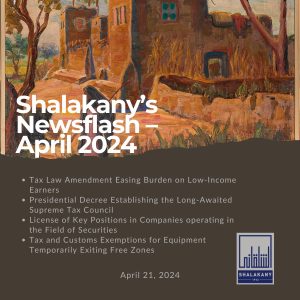On 15 June 2020, the Prime Minister issued Decree No. 1199 for the year 2020 including a new amendment (the “Amendment”) to the Executive Regulations of the Investment Law No. 72 for the year 2017 issued by virtue of Prime Ministerial Decree No. 2310 for the year 2017 (the “Executive Regulations”). The Amendment relates to Article 76 of the Executive Regulations, which governs the conditions for investment projects that wish to operate as a private free zone (the “Project”).
We will guide you through the effect of the Amendment on Article 76 of the Executive Regulations.
Conditions for Private Free Zones
The conditions for operating as a private free zone pursuant to Article 76 of the Executive Regulations can be summarized as follows:
-
- There must be no suitable site for the Project’s activity within the sites available in public free zones; and the required location for the private free zone must be an influencing factor for the economics of the Project.
- The Project must take the form of a joint stock company or a limited liability company.
- The issued capital of the Project must not be less than USD 10 million; and its investment costs must not be less than USD 20 million or their equivalent in exchangeable currencies.
- Industrial projects may not have less than five hundred permanent workers; yet an exception from the said threshold may be granted to strategic projects whose activity does not require large numbers in manpower.
- The Project area cannot be less than twenty thousand square meters.
- The local component percentage of the Project must not be less than 30%.
- The percentage of exports of the Project must not be less than 80%; yet an exception from this percentage may be granted to strategic projects of special importance.
- The Project must adhere to the conditions of industrial safety, civil defense and fire security in accordance with the applicable Egyptian codes. The facility and its borders must be secured with guard towers and surveillance cameras; and the presence of personnel from ports security and General Authority for Investment and Free Zone’s security – at the expense of the project – is mandatory.
The Amendment stipulates that the Cabinet may, for the considerations it assesses on a case-by-case basis, and based on the proposal of the competent Minister and after the approval of the General Authority for Investment and Free Zones’ Board of Directors, exempt any of the Projects from one or more of the above conditions. This is without prejudice to the exemptions already allowed under Article 76 prior to the enactment of the Amendment.
Market Reaction
The Cabinet has taken a preemptive measure through the enactment of the Amendment in an effort to create a better environment for investors, many of which have endured severe economic losses due to the impact of the COVID-19 outbreak in local and global markets. While it is still early to assess the effect of the Amendment on the market, and the extent to which it alleviates further losses in such a critical time, it must be noted that any measures aiming to facilitate the investment ecosystem are both welcomed and encouraged.



